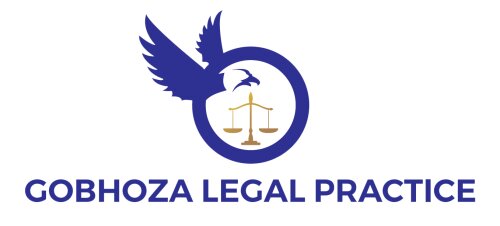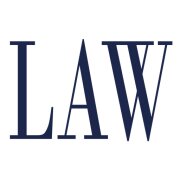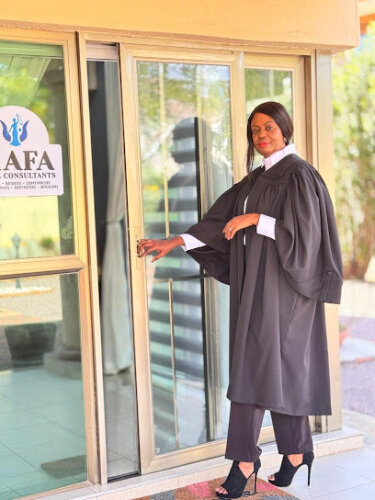Best Government Relations & Lobbying Lawyers in Botswana
Share your needs with us, get contacted by law firms.
Free. Takes 2 min.
Or refine your search by selecting a city:
List of the best lawyers in Botswana
About Government Relations & Lobbying Law in Botswana
Government relations and lobbying in Botswana involve individuals and organizations engaging with government officials to influence legislative or regulatory decisions. This can include a broad range of activities from direct lobbying of government employees to participating in public consultations and commissions. Although Botswana does not have specific regulations solely governing lobbying activities, it is subject to various legislative frameworks that promote transparency, accountability, and integrity in public service. These include the Constitution, anti-corruption laws, and specific guidelines laid down by governmental departments regarding interactions with external entities.
Why You May Need a Lawyer
Engaging in government relations and lobbying within Botswana can be complex, especially for individuals and organizations unfamiliar with the local legislative landscape. Legal advice may be necessary in several situations, including:
- Understanding and navigating regulatory requirements for engaging with government officials.
- Ensuring compliance with anti-corruption and bribery laws to avoid legal repercussions.
- Developing strategies for effectively influencing policy or regulatory changes.
- Handling disputes or accusations of improper conduct in lobbying activities.
- Drafting and reviewing contracts or agreements involving public-private partnerships or government projects.
Local Laws Overview
Several key laws and regulations are pertinent to government relations and lobbying in Botswana:
- The Constitution of Botswana: Sets the fundamental legal framework and principles of governance.
- Corruption and Economic Crime Act: Provides measures to fight corruption and promote integrity, ensuring that lobbying efforts do not violate anti-corruption laws.
- Public Procurement and Asset Disposal Act: Governs the processes involved in government contracts and tenders, often relevant to lobbying efforts targeting public procurement.
- Administrative Justice Act: Provides for fair administrative procedures and the right to fair administrative action, which can be important in situations of lobbying and government appeal processes.
Frequently Asked Questions
What is lobbying?
Lobbying involves the act of advocating or influencing government decision-makers to pass, amend, or repeal legislation or to shape regulatory outcomes.
Is lobbying legal in Botswana?
Yes, lobbying is legal in Botswana, but it must be conducted transparently and ethically, adhering to all relevant laws, particularly those combating corruption and promoting integrity.
What are the penalties for unethical lobbying practices?
Engaging in unethical lobbying practices, such as bribery or corruption, can lead to severe penalties, including fines, imprisonment, and reputational damage.
Do I need to register as a lobbyist in Botswana?
Currently, there is no formal registration requirement for lobbyists in Botswana, but it is crucial to ensure all activities adhere to applicable laws and ethical standards.
How can I ensure compliance with lobbying laws?
Consulting with legal experts familiar with Botswana’s regulatory environment can help ensure that your lobbying activities comply with all relevant laws and ethical guidelines.
Can foreign entities lobby the Botswana government?
Yes, foreign entities can engage in lobbying efforts, but they must follow the same legal and ethical rules that apply to local entities.
What is the role of a government relations lawyer?
Government relations lawyers advise clients on legal compliance, develop lobbying strategies, engage with government officials, and represent clients in disputes related to government policies or contracts.
How can I find a government relations lawyer in Botswana?
You can find legal professionals through local bar associations, recommendations from peers, or professional legal directories.
Are meetings with government officials considered lobbying?
Yes, meetings aimed at influencing policy decisions or advocating for legislative changes with government officials are generally considered lobbying.
What is the importance of transparency in lobbying?
Transparency in lobbying ensures that all interactions with government entities are conducted ethically, persuading decisions are made based on merit and public interest and not undue influence.
Additional Resources
For more detailed guidance and resources, consider reaching out to the following:
- Directorate on Corruption and Economic Crime (DCEC): Offers resources on anti-corruption laws and enforcement in Botswana.
- Botswana Chamber of Commerce, Industry, and Manpower (BOCCIM): Provides information on engaging with government and navigating business regulations.
- Botswana Law Society: Can assist in finding qualified lawyers specializing in government relations and lobbying law.
Next Steps
If you require legal assistance in government relations and lobbying, consider following these steps:
- Identify the specific legal issue or need you have regarding government relations or lobbying.
- Research and contact legal professionals who specialize in this area to discuss your situation.
- Prepare any necessary documentation or information relevant to your issue before consultation.
- Engage with your selected lawyer to develop a clear legal strategy tailored to your objectives and compliance requirements in Botswana.
Lawzana helps you find the best lawyers and law firms in Botswana through a curated and pre-screened list of qualified legal professionals. Our platform offers rankings and detailed profiles of attorneys and law firms, allowing you to compare based on practice areas, including Government Relations & Lobbying, experience, and client feedback.
Each profile includes a description of the firm's areas of practice, client reviews, team members and partners, year of establishment, spoken languages, office locations, contact information, social media presence, and any published articles or resources. Most firms on our platform speak English and are experienced in both local and international legal matters.
Get a quote from top-rated law firms in Botswana — quickly, securely, and without unnecessary hassle.
Disclaimer:
The information provided on this page is for general informational purposes only and does not constitute legal advice. While we strive to ensure the accuracy and relevance of the content, legal information may change over time, and interpretations of the law can vary. You should always consult with a qualified legal professional for advice specific to your situation.
We disclaim all liability for actions taken or not taken based on the content of this page. If you believe any information is incorrect or outdated, please contact us, and we will review and update it where appropriate.
Browse government relations & lobbying law firms by city in Botswana
Refine your search by selecting a city.















